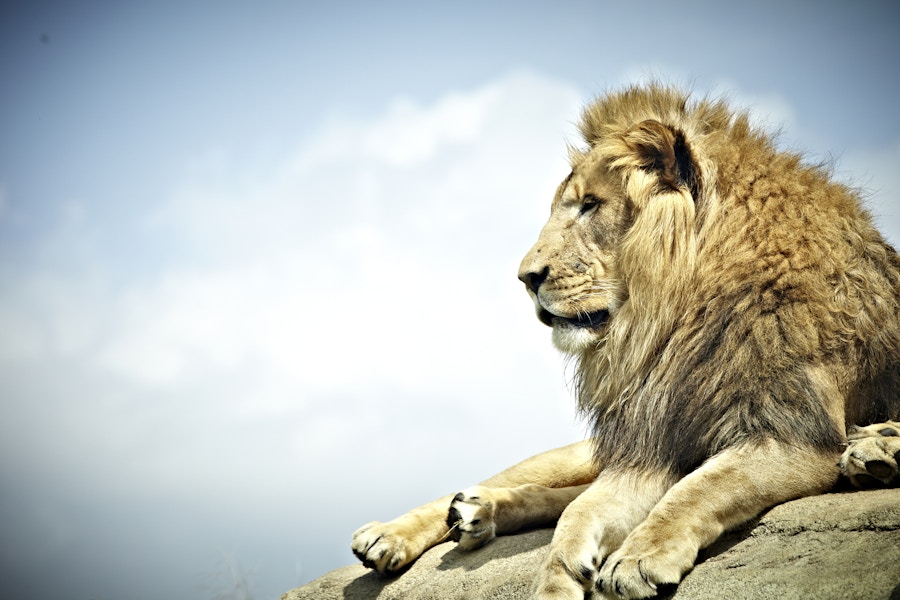Introductory Note:
Since a theme of knowing the right times to speak, to serve, and to be silent emerged this week, today we are offering a bit of Augustine to usher in our weekend. Here he writes about submitting our tongues (and ourselves) to the training of the great Tamer until the day we “need no more His taming hand, but only to be possessed by His exceeding mercy.”
Renovaré Team
Who would not fear Him who speaks the truth, and says, Whosoever shall say to his brother, ‘You fool,’ shall be in danger of hell fire? Yet the tongue can no man tame. Man tames the wild beast, yet he tames not his tongue; he tames the lion, yet he bridles not his own speech; he tames all else, yet he tames not himself; he tames what he was afraid of, and what he ought to be afraid of, in order that he may tame himself, that he does not fear. But how is this? It is a true sentence, and came forth from an oracle of truth, But the tongue can no man tame.
What shall we do then, my brethren? … What shall we do then? Whosoever says to his brother, ‘You fool,’ shall be in danger of hell fire: But the tongue can no man tame. Shall all men go into hell fire? God forbid! Lord, You are our refuge from generation to generation: Your wrath is just: You send no man into hell unjustly. Whither shall I go from Your Spirit? and whither shall I flee from You, but to You? Let us then understand, dearly beloved, that if no man can tame the tongue, we must have recourse to God, that He may tame it. For if you should wish to tame it, you can not, because you are a man. The tongue can no man tame. Observe a like instance to this in the case of those beasts which we do tame. The horse does not tame himself; the camel does not tame himself; the elephant does not tame himself; the viper does not tame himself; the lion does not tame himself; and so also man does not tame himself. But that the horse, and ox, and camel, and elephant, and lion, and viper, may be tamed, man is sought for. Therefore let God be sought to, that man may be tamed.
Therefore, O Lord, are You become our refuge. To You do we betake ourselves, and with Your help it will be well with us. For ill is it with us by ourselves. Because we have left You, You have left us to ourselves. Be we then found in You, for in ourselves were we lost. Lord, You have become our refuge.
Why then, brethren, should we doubt that the Lord will make us gentle, if we give up ourselves to be tamed by him? You have tamed the lion which you made not; shall not He tame you, who made you? For from whence did you get the power to tame such savage beasts? Are you their equal in bodily strength? By what power then have you been able to tame great beasts? The very beasts of burden, as they are called, are by their nature wild. For in their untamed state they are unserviceable. But because custom has never known them except as in the hands and under the bridle and power of men, do you imagine that they could have been born in this tame state? But now at all events mark the beasts which are unquestionably of savage kind. The lion roars, who does not fear? And yet wherein is it that you find yourself to be stronger than he? Not in strength of body, but in the interior reason of the mind. You are stronger than the lion, in that wherein you were made after the image of God. What! Shall the image of God tame a wild beast; and shall not God tame His own image?
In Him is our hope; let us submit ourselves to Him, and entreat His mercy. In Him let us place our hope, and until we are tamed, and tamed thoroughly, that is, are perfected, let us bear our Tamer. For oftentimes does our Tamer bring forth His scourge too. For if you bring forth the whip to tame your beasts, shall not God do so to tame His beasts (which we are), who of His beasts will make us His sons? Thou tame your horse; and what will you give your horse, when he shall have begun to carry you gently, to bear your discipline, to obey your rule, to be your faithful, useful beast? How do you repay him, who will not so much as bury him when he is dead, but cast him forth to be torn by the birds of prey? Whereas when you are tamed, God reserves for you an inheritance, which is God Himself, and though dead for a little time, He will raise you to life again. He will restore to you your body, even to the full number of your hairs; and will set you with the Angels for ever, where you will need no more His taming hand, but only to be possessed by His exceeding mercy. For God will then be all in all; neither will there be any unhappiness to exercise us, but happiness alone to feed us. Our God will be Himself our Shepherd; our God will be Himself our Cup; our God will be Himself our glory; our God will be Himself our wealth. What multiplicity of things soever you seek here, He alone will be Himself all these things to you.
Augustine’s “Sermon Five on the New Testament,” public domain via New Advent.


